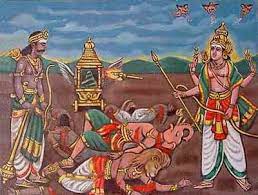
Skanda Sashti is a Tamil Hindu festival honouring Lord Skanda, also known as Lord Muruga or Kartikeya, the God of war and the son of Lord Shiva and a prominent deity in Southern India. Lord Murugan is celebrated on sashti, the sixth day of the lunar cycle. Devotees observe a fast on the full moon day and give their undivided devotion to Lord Muruga or Skanda. Skanda Sashti Kavacam song is relevant in any episode of Skanda Sashti. The
intense aura of Skanda Sashti Kavacam Song is said to invoke Lord Muruga or Skanda and motivate wellbeing, career, relationships, and overall prosperity. Skanda Sashti fasting is practised between sunrise and sunset, especially when Sashti or the sixth day, arrives. Both Sashti is practised with zeal, but sukla paksa sashti in the lunar month of Kartika is the most important.
According to mythology, Lord Murugan was born from Lord Shiva’s third incarnation for a specific individual. He is revered as Devi’s army’s commander, also known as the God of Wars. He is most known for eradicating the demon Soorapadman and his brethren Tarakasura and Simhamukha. Sukla Paksa, Sashti tithi commemorates his victory over the demons. Lord Murugan is said to have severed Soorapadman’s head with his sword, Vel. And two birds appeared from the demon’s head: a peacock and a rooster. The rooster became a symbol on his banner, and the peacock became his vahana.
Lord Karthikeyan is regarded as the younger brother of Lord Ganesha by Hindus in South India, although he is considered the older brother of Hindus in North India. There is a mythology surrounding Lord Kartikeyan’s birth and assassination of Surapadma. Once upon a time, the three demons, Surapadman,
Simhamukhan, and Tarakasuran, wreaked devastation over the globe. Surapadman had received a blessing from Lord Shiva that Shiva’s abilities would only destroy him. This increased his strength to the point that he and his siblings became a menace to humanity and devas.
As the devas want to free themselves of these demons, they approach Lord Shiva, who can only defeat that demon. However, the mission grew more difficult for them as Shiva was absorbed in a deep concentration. As a result, the devas dispatched the God of Love, Manmata, to excite Shiva’s amorous passions and thereby distract him from meditation. Manmata’s concentration was disrupted when he
discharged his Puspasaram (arrow of flowers) toward Lord Shiva. This incensed the ruler, and he burnt Manmata to ashes. Later, at the behest of all the devas, Shiva revived Manmata and chose to give birth to a kid endowed with all his demon-slaying abilities. Lord Shiva emitted six sparks from his third eye, which were taken to the cooling waters of the river Saravana by the God of fire Agni, where the six sparks materialised as six holy kids. Six damsels, dubbed the Kartika sisters (from the six stars of the constellation Kartika or Pleiades), consented to care for these infants. When Mother Parvati arrived and caressed the six children developing in the pond, they combined into one kid with six faces, twelve hands, and two feet.
Kartikeyan was the name given to this magnificent figure. Mother Parvati bestowed upon his abilities, prowess, and a lance called Vel in Tamil. Karthikeyan developed into a philosopher and warrior as he got older. He became a personification of wisdom and compassion and possessed a vast understanding of the battle. He and his aides waged war against Surapadman and his brothers. The lord assassinated Surapadman’s brothers Simhamukhan and Tarakasuran on his route to the demon’s city. Then furious combat ensued between the Lord and the devil, during which he severed Surapadman’s Vel. A peacock and a cock erupted from Surapadman’s corpse, the former serving as the theory’s vahana (vehicle) and the latter as a sign of triumph over evil on his flag. Karthikeya beat Surapadma on sashti. Additionally, it is believed that
when Surapadman received severe wounds, he begged the Lord to spare him. Therefore Muruga transformed him into a peacock on the condition that he would remain his vahana in perpetuity